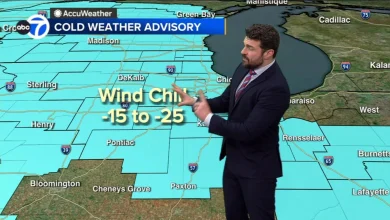Amazon Issues Account Attackers Warning to 300 Million

Black Friday is almost here, and as shoppers gear up for one of the biggest retail events of the year, companies are issuing warnings as concerns over cybercriminals rise.
This includes online retail giant Amazon, which has issued a warning to over 300 million active users ahead of the sales that cybercriminals may try to access “sensitive information” from them. This is what you need to know.
Newsweek has contacted Amazon outside of regular working hours via email for comment.
Why It Matters
In 2025, cybercriminals continue to pose a threat to consumers as they continue to develop new attack platforms. A 2024 report from the FBI’s internet Crime Complaint Center found that victims reported over $16 billion in losses—up 33 percent from the previous year.
And major shopping events like Black Friday can pose particular risks for shoppers. A report from Seon found that fraudulent transactions were around five times higher on Black Friday than an October baseline, and some four times higher on Cyber Monday.
What To Know
Ahead of Black Friday 2025, Amazon has sent a warning to its user base of more than 300 million people, to stay alert for impersonation scammers.
In an email sent on November 24, Amazon said that cybercriminals are targeting users by reaching out to try to get “access to sensitive information like personal or financial information, or Amazon account details,” as per Forbes.
The email warned of the following kinds of attacks:
- Account issue or fake delivery messages.
- Messages that have been sent through unofficial channels, that are requesting account or payment information, and this same practice via unfamiliar links.
- Third-party adverts which offer amazing deals.
- Unsolicited phone calls offering tech support.
Amazon advises that shoppers:
- Solely use the Amazon mobile app or website for services including: customer service, account changes, delivery tracking, and refunds.
- Use two-factor authentication when available and/or use a passkey
What People Are Saying
Amazon, in advice shared on their website about impersonation scams: “Impersonation scams occur when a scammer pretends to be a trustworthy organization or person in order to steal your money or personal information. Impersonation scams are perpetrated in a wide variety of ways—by phone, email, text, or even by messaging you on social media. Scammers aim to have you make a payment of some kind, share personal information, or give them access to your computer. They do so by pretending to be a well-known organization with whom you’ve likely engaged.”
What’s Next
Black Friday begins on November 28, and will kick off the start of the festive shopping season.





